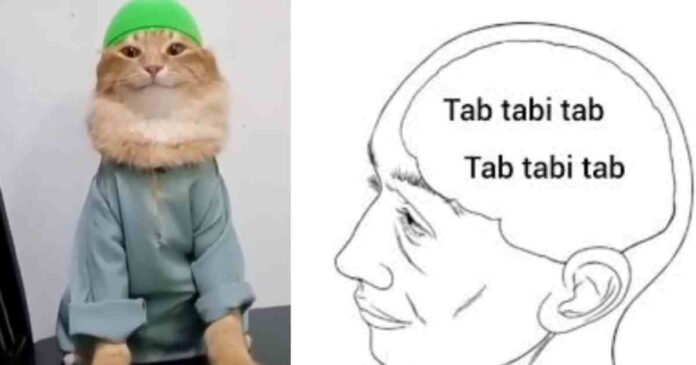We all have an audio stuck in our heads this Ramadan season- the “Tab Tabi Tab” song. I’m sure you have also come across this viral meme sensation that has taken over the social media and is being featured in numerous reels and hilarious relatable content.
But little do many people know that this audio goes beyond the meme culture and has an insane 1200-year-old back story to it. Yes, the meme has a connection to the ancient history!
The Origin of the “Tab Tabi Tab” Audio
It is stated in the historical folklore that the Abbasid Caliph Al-Mansur of the 8th century had an exceptional memory and was able to memorise an entire poem just by hearing it once. Talk about a good memory!
The Caliph then competed with the poets of his time and called them in his court to recite their literary poems, listen to their recitals and tease them by saying that this isn’t their original piece and that he had heard it before. He would then repeat it word by word to prove his point and then make their art his own. Poor poets didn’t know they were getting played.
The Poem that Outwitted the Ancient Caliph
However, then a poet named Al-Asma’i recognised the Caliph’s trick. He then devised a brilliant trick and recited a very strange poem with a weird rhyme scheme. The poem had very complex verses and odd repetitions that were almost impossible to memorise.
The verses of this confusing poem were:
“Fi wasat bustan halī, bazhar wal-surur lī
Wa laudu dandan danālī, at-tabl tabtab tabālī
Tab tabi tab tab tabālī, tab tabi tab tab tabālī”
This trick left the mighty Caliph speechless; he couldn’t recall a word and poet Al-Asma’i won the round. This allowed the poet to protect his poem.
Read More: Ramadan 2025: Countries Fasting the Longest and Shortest Hours
From Ancient Folklore to an Internet Viral Meme
This old folklore has now resurfaced and has taken the shape of a viral meme, allowing history to be turned humourous too.
View this post on Instagram
However, this is still at the end of the day just a folklore and has the purpose of keeping people intrigued with a good ending. Just like the sound, the story is for entertainment too and both are playing their role even after 1,200 years.
Stay tuned to Brandsynario for the latest news and updates.










































